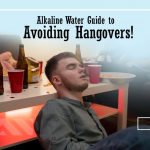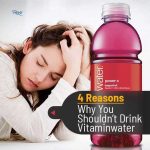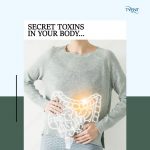If you’re like many of us, you pay attention to your health: You try to eat well, get some fresh air and exercise, avoid the extra-large coffees and fries, and be mindful of your alcohol intake. But you might be consuming some unhealthy and potentially harmful substances without even knowing it.

Every day, we consume processed foods and beverages that contain hidden ingredients with not-so-hidden negative consequences. Pay attention to the following bad chemicals in food, and avoid their unhealthy repercussions.
Instead of just obsessing about the no-no’s, we believe that having healthy alternatives is the best way to live an overall pro-health lifestyle. So we’ve provided alternatives to the downright scary stuff below.
1. BHT (butylated hydroxytoluene). Food engineers place this additive in processed foods to help fats from becoming rancid. You should avoid it for its possible negative effects on the stomach and liver. BHT is normally found in potato chips and processed baked goods, but it can also be found in cosmetics.
TRY THIS: Instead of snacking on highly processed chips or crackers, go with crunchy carrots or bake your own pita chips.
2. Glutamic acid, yeast extract, caseinate, and other names for MSG. Anyone with a clue about health knows that MSG is bad. It’s more difficult to keep an eye out for MSG hiding under other names, like glutamic acid. MSG enhances foods’ flavors, but it has the potential to make us sick, so make sure you know MSG’s synonyms so you can keep a wary eye out.
TRY THIS: Since MSG is found in a variety of foods from soup to nuts, there’s no one food to avoid. Actively check labels, and opt for fresh food in general. Fresh tomatoes or farm-raised beef definitely won’t have MSG!
3. 4-MI. 4-MI is short for 4-methylimidazole. A good rule of thumb is, if it’s as difficult to pronounce as methylimidazole, it’s probably not good for you. New reports suggest that this chemical causes cancer in animals, and the verdict’s out on whether it’s bad for people, too. Still, better to be on the safe side. 4-MI is also known as “caramel coloring” in all of our favorite brown sodas.
TRY THIS: You want the simple solution? Quit drinking soda and switch to water. If you crave carbonation, try diet clear sodas or carbonated water.
4. BPA (bisphenol A). Frequently found in plastic or canned food packaging, BPA is linked to serious health problems: diabetes, liver malfunctions, heart disease, and brain issues included. The culprit food packaging includes bottles that bottled water is often packaged in.
TRY THIS: You can’t exactly find BPA on an ingredients list because it’s more about the packaging than what’s in it, so this chemical is a tough one to sniff out. What you can do is eat fewer foods that come in contact with plastics and cans. Fresh and frozen foods are, once again, your best bet. You can also avoid bottled water and stick with the grade-A pure water from a water ionizer to ensure that no BPA is sifting in through your water.
5. Trihalomethanes. There’s a laundry list of potential chemicals in drinking water, and they’re all frightening. But trihalomethanes are some of the worst culprits. These chemicals are actually made of cleaning byproducts, including chloroform. Trihalomethanes could be cancer-causing, and unfortunately, they’re present in much of the drinking water across the country.
TRY THIS: Plain and simple: Don’t drink bad water. Drink water that’s good for you, and that’s going to benefit your life instead of hurt your body. We recommend alkaline ionized water from a Tyent water ionizer for water that’s totally clean with the added benefits of antioxidants and hydroxyl ions.
Whenever you purchase food, ask yourself if there’s a fresher option; that’s normally going to be your best bet. When it comes to drinking, clean water is always going to be healthier than any drink on the shelf. Let us know if you have additional tricks to avoid bad chemicals in food and drinks!









[…] not as concerned with going green, you should still be aware that plastic bottles can contain BPA, a harmful chemical for the earth and for humans. Bottled water is also usually acidic, and our diets are already too […]
[…] began discovering that their tap water—so long revered as supremely healthy—could have harmful chemicals. The science of water ionization responded to the need for cleaner water every day at […]